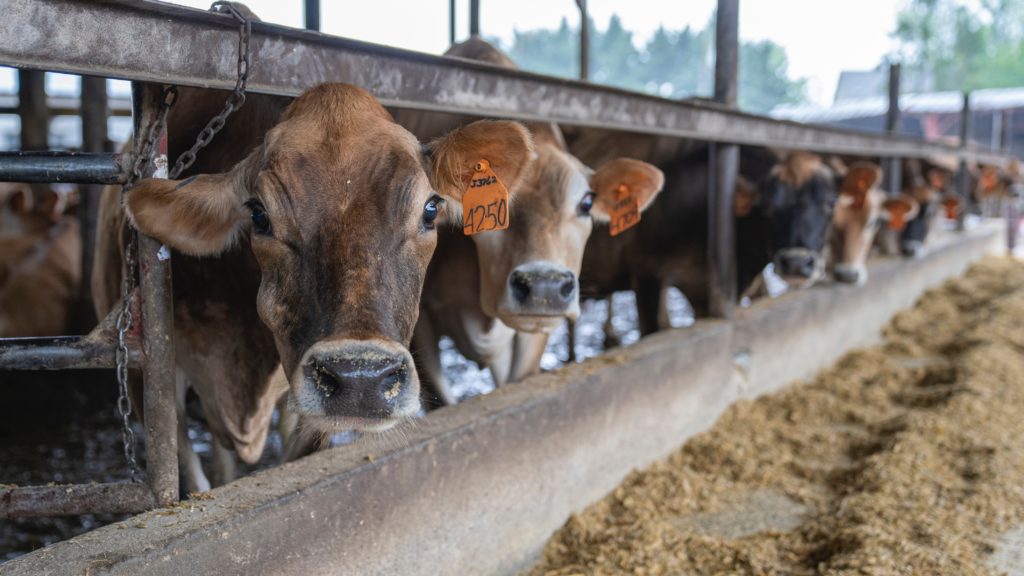4 Mins Read
What happens when you go vegan for a month? Here are the benefits of a Veganuary commitment on your health and the planet.
More than 500,000 people took part in Veganuary in 2021—and that number could double this year. The month-long campaign kicks off the New Year by encouraging people to go vegan for the entire month of January for their health and their planet.
Veganuary By the Numbers
If you think Veganuary is just for hardcore vegans to share more vegan memes, the numbers tell a different story. The campaign notes that last year, more than half of the participants were still eating animal products when they made the pledge. Only 19 percent of participants in 2020 were vegan.
“More than half of our non-vegan participants maintained a fully vegan diet for the whole month (59%) and an amazing 72% of them plan to stay vegan after Veganuary,” the campaign notes on its website. The top reasons for participants cited for staying vegan included learning more about the diet, finding it easier and tastier than expected, and noticeable health benefits.
But what are the benefits, exactly? Is a month really enough time to improve health or reduce your carbon footprint?
Health Benefits of Going Vegan
Participants in the Veganuary program did note health benefits encouraged them to keep going with the diet. It may not all be in their heads, either. While the benefits can vary wildly from person to person, there are noted pros to a vegan diet. Some of the most common reports include weight loss, reduced cholesterol and blood sugar levels, improved digestion, and clearer skin.

“After just 30 days of not eating meat or dairy products, my LDL dropped from 48 mg/dL to 32 mg/dL. That’s a 16-point drop or, even more impressive, a 33 percent decrease in my bad cholesterol,” Breana Killeen, EatingWell Test Kitchen Manager explained. She went vegan for a month in 2019. “I was completely wowed. Here was evidence that a plant-based diet can potentially make a huge dent in LDL, whether you start with high or low cholesterol.”
Reducing your meat intake could be a game-changer.
In 2015, the World Health Organization’s International Agency for Research on Cancer added processed meat to its list of carcinogens. Since then, scores of data have continued to confirm the link between meat and health risks. Last summer, researchers found white meat impacts cholesterol just as much as red meat, overcoming longstanding beliefs to the contrary.
Increasing plant protein and fiber, on the other hand, continues to show long-term health benefits.
Environmental Benefits of Going Vegan
While the health benefits of going vegan can be more difficult to calculate, the environmental benefits are fairly straightforward.
According to The Vegan Calculator website, a month on a vegan diet saves:
- 33,000 gallons of water
- 900 square feet of forest
- 1,200 lbs of grain
- 600 lbs of CO2
- 30 animals
And while these numbers are notable on their own, they’re even more powerful when multiplied. If you’re one of the 500,000 people who went vegan last Veganuary, you helped collectively save:
- 16.5 billion gallons of water
- 450 million square feet of forest
- 600 million lbs of grain
- 300 million lbs of CO2
- 15 million animals
Agricultural Emissions
Animal agriculture needs all the help it can get. Or, rather, all the detractors. Livestock production is responsible for at least 18 percent of all global greenhouse gas emissions. That’s more than all transportation sectors combined. When it comes to CO2, livestock produces 51 percent of all CO2 emissions globally, about 32 billion tons.
And even with hundreds of thousands of people going vegan (for Veganuary or not), agricultural emissions are set to increase.
Climate change’s impact has never been more evident.

But to hit Paris Agreement targets, experts say we can’t do it without drastic changes to our diets. Namely, we need to rethink meat and seafood. Based on current emissions trends in the food sector, we’ll produce more than 1,300 gigatons by the end of the century.
And if you needed any more reason to congratulate yourself on a month-long vegan diet, or encouragement to keep it going, it’s not hard to find.
According to a study published in the journal Science in 2020, to have “any hope” of meeting Paris Agreement targets, drastic measures are needed.
“[Even if fossil fuel emissions were eliminated immediately, emissions from the global food system alone would make it impossible to limit warming to 1.5°C and difficult even to realize the 2°C target. Thus, major changes in how food is produced are needed if we want to meet the goals of the Paris Agreement.”
Lead image The Creative Exchange on Unsplash



